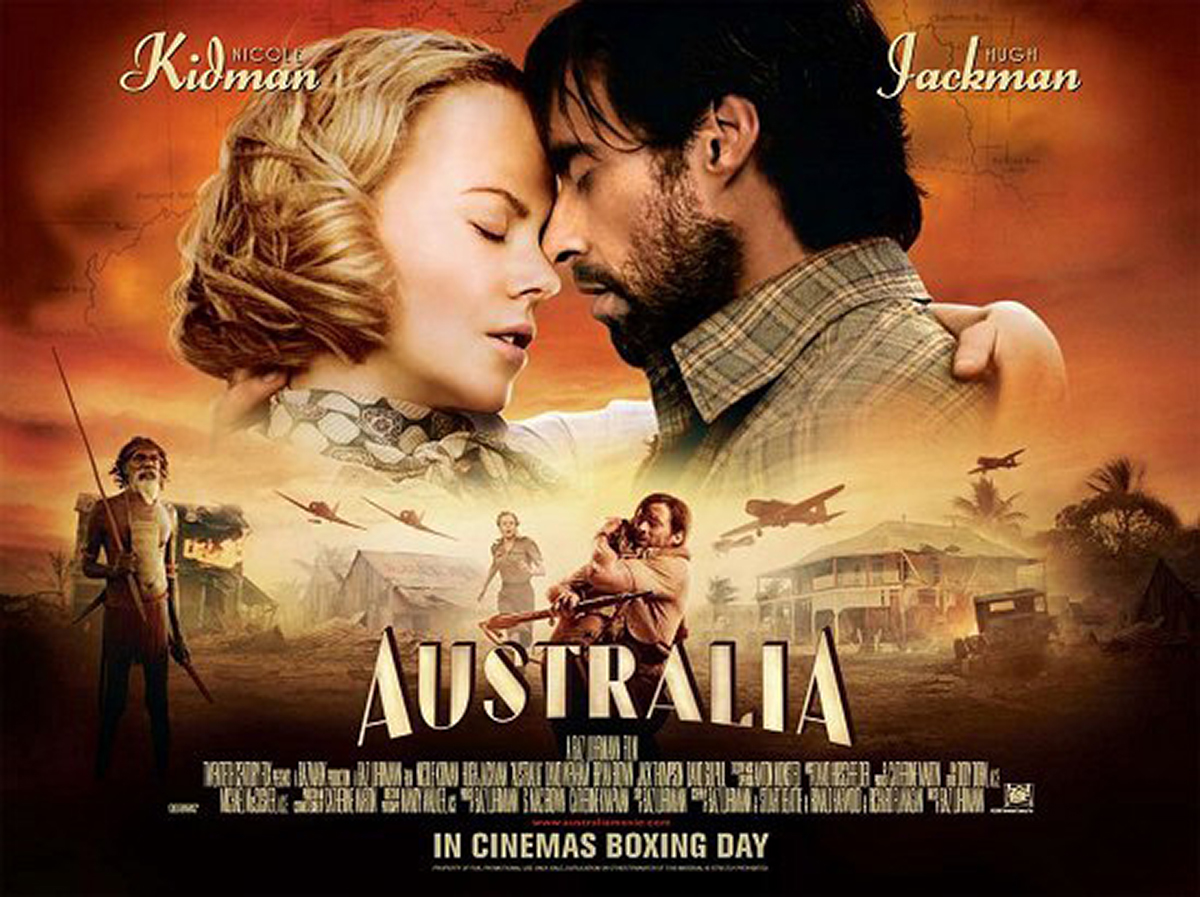
Deep Archive: Angry at Australia
Baz Luhrmann’s Australia premiered in 2008. In RealTime 95, Robyn Archer challenges director Baz Luhrmann’s use of music “deeply tied to an unreconstructed dependency on our colonisers,” while Philip Brophy in RT89 says blame the country, not the film.
Archer’s angry if often witty response, “The sound of some other Australia,” is an edited version of her Manning Clark Lecture, “The price of survival,” which she delivered in 2009. Archer opens with a provocation posed by the great historian, “Would the price of survival as a people be the shedding of that attempt to preserve a European society?” In 2018, the question still needs to be posed — vigorously and just as passionately. Dealing with the film’s music, which she felt that reviewers had neglected to warn her about, provides Archer with a springboard to addressing key cultural issues raised by this “queer and kitsch film.”
Brophy, in a departure from arguing via his usual analysis of a film’s music and sound design, urges that Luhrmann’s Australia should be addressed as symptomatic of the context that created it — the broader culture and, specifically, the Australian film industry: “The film is inevitably an easy target — but using a narrow-gauge shotgun is an ineffective critical strategy when aimed at the nationalist mirage within which Australian cinema’s self-image has shimmered for over quarter of a century.”
Like Archer, Brophy detects shadowy forces embedded in the present: “unexpectedly, I find the film to be addressed to the dead: to speak to the ghosts of this thing called ‘Australia,’ who haunt the psyche, the mediascape and the political forum…”
–
Australia, director Baz Luhrmann, writers Stuart Beattie, Baz Luhrmann, Ronald Harwood, Richard Flannagan, cinematography Mandy Walker, editing Dody Dorn, Michael McCusker, production design Catherine Martin, 2008
Top image credit: ‘Australia’ promotional poster






